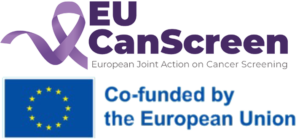Work Package 8:
Facilitation of the new screening approach implementation
WP 8
Facilitation


NKIP, Hungary, co-led by SCI, Belgium
Work Package Summary
The overall objective is to provide a comprehensive overview of the current state of art on lung, gastric and prostate cancer screening (ie, recently recommended screening) and inform their integration into current practice with screening for breast, cervical and colorectal cancers.
Specific objectives are as follows:
1) To design common data capture standards for personalised data within the recently recommended screening programs.
2) To facilitate development of the European data platforms for recently recommended screening programs in compliance with the EHDS principles.
3) To address pilot interventions in the areas with insufficient evidence to facilitate the goals of the recently recommended screening programs.
NKIP, Hungary,
co-led by SCI, Belgium
Tasks
Subscribe to our newsletter to get news and updates.
Subscribe to our newsletter to get news and updates.

The general objective of EUCanScreen is to assure sustainable implementation of high-quality screening for breast, cervical and colorectal cancers, as well as implementation of the recently recommended screening programs – for lung, prostate and gastric cancers. EUCanScreen will facilitate the reduction of cancer burden and achieving equity across the EU.
This project has received funding from the European Union’s EU4HEALTH Programme under the Grant Agreement no 101162959










